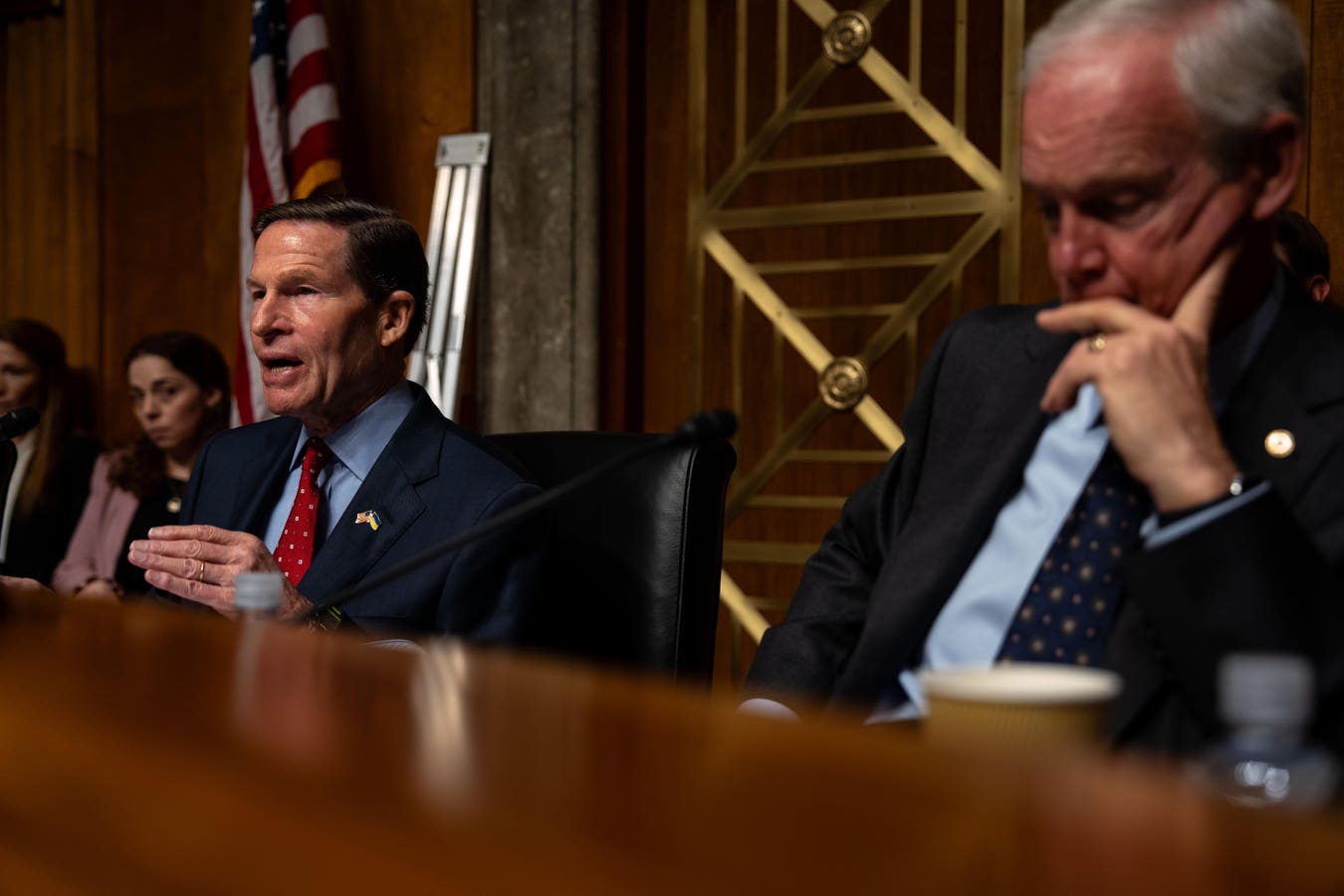Prompted by recent whistleblower claims of issues with the Boeing
BA
During the meeting the Senators heard testimony from whistleblower Sam Salehpour, current Quality Engineer at Boeing; Ed Pierson, Executive Director of the Foundation for Aviation Safety and a former Boeing engineer; Joe Jacobsen, Aerospace Engineer and Technical Advisor to the Foundation for Aviation Safety and a former FAA engineer; and Shawn Pruchnicki, PhD, Professional Practice Assistant Professor, Integrated Systems Engineering at the Ohio State University.
The objective was to examine the safety culture at the aircraft manufacturer, which has recently come under close scrutiny following the Alaska Airlines
ALK
The scope of the hearing extended beyond the issues Salehour raised on the Boeing 787 Dreamliner and 777 planes. It also went beyond the current issues with the 737 MAX program, reopening questions the failed design of the 737 MAX Maneuvering Characteristics Augmentation System which led to two separate crashes and grounded the global fleet.
At issue, was the deal Boeing reached with the Department of Justice in 2021 on charges of fraud conspiracy related to information Boeing withheld during the certification of this MCAS system.
MCAS Fraud Charges Back In Focus
As part of the deferred prosecution agreement Boeing signed with the DOJ, Boeing admitted to deceiving the FAA Aircraft Evaluation Group about this critical flight control system of the Boeing 737 MAX withholding information about MCAS functions, and failing to include adequate information on airplane manuals and pilot-training materials.
In 2021, U.S. Attorney Erin Nealy Cox for the Northern District of Texas said of Boeing’s actions, “The misleading statements, half-truths, and omissions communicated by Boeing employees to the FAA impeded the government’s ability to ensure the safety of the flying public.”
During today’s Senate hearing Senator Johnson said, “We come back to accountability. Yes. Has anybody been held accountable for concealing that from the FAA? I mean, 300 some lives were lost again, my condolences those family members of those lives were lost. This was beyond negligence. This is an overt act. And nobody has been held accountable in any way shape or form, financially losing their job, criminally held liable.”
At the time of the agreement, Acting Assistant Attorney General David P. Burns of the Justice Department’s Criminal Division said, “Boeing’s employees chose the path of profit over candor by concealing material information from the FAA concerning the operation of its 737 Max airplane and engaging in an effort to cover up their deception. This resolution holds Boeing accountable for its employees’ criminal misconduct.”
Boeing agreed to pay criminal penalties of over $2.5 billion, made up of criminal monetary penalty of $243.6 million, $1.77 billion in compensation to Boeing’s 737 MAX airline customers, and a $500 million fund to compensate the families of the 346 passengers killed in the Lion Air Flight 610 and Ethiopian Airlines Flight 302 crashes.
With New DOJ Investigation Launched, Did Boeing Break Terms Of 2021 Deal?
The DOJ launched a new a criminal investigation into the Alaska Airlines Boeing 737-9 MAX mid-exit door plug blowout this March.
The original deferred prosecution agreement required Boeing to “cooperate with the Fraud Section in any ongoing or future investigations and prosecutions.” Boeing was also required to “report any evidence or allegation” of any other fraudulent activities in future. Boeing also agreed “to strengthen its compliance program.”
The National Transportation Safety Board is investigating why documents are missing for repair work performed on the Alaska Airlines door plug. NTSB Chair Jennifer Homendy revealed last week that there were more repairs performed at Boeing which required removing and re-installing the door plug. She said it was unclear at the time whether those repairs had been documented. For Boeing, this news is a potential liability in terms of its original agreement with the DOJ. If other similar repairs were properly documented, it will raise questions of why the one for the Alaska Airlines plane was not. If none of these repairs were documented, it does not reflect well on the integrity of Boeing’s quality and compliance program.
The Senator’s questions could put pressure on the DOJ to look more closely at these issues and examine whether Boeing has met the terms of its original agreement.
The Question Of Pervasive Misconduct At Boeing
During the 2021 agreement, the DOJ did not assign an independent compliance monitor to oversee Boeing’s progress because it considered that the “misconduct was neither pervasive across the organization, nor undertaken by a large number of employees, nor facilitated by senior management.”
However, today’s testimony by whistleblower Sam Salehpour suggests otherwise.
“I have raised these issues over three years. I was ignored. I was told not to create delays. I was told, frankly, to shut up. At one point Boeing management got sick of me raising these issues and moved me out of the 787 program into the 777 program. And at the 777 program I found problems,” he said. “Again, I raised concerns internally. I was sidelined I was told to shut up. I received physical threats. My boss said, ‘I would have killed someone who said what you said in the meeting.’ This is not safety culture, when you get threatened for bringing issues of safety concerns. I hope that your work on this issue signals the point that they must make real changes and get back to building the airplane safely.”
Boeing disputes Salehpour’s claims of a lack of structural integrity in the 787 Dreamliner and 777 fuselages. The company also denies engaging in any retaliation against employees who speak up.
However, Salehpour’s complaints are similar to those of other Boeing whistleblowers, including John Barnett, who worked as a quality manager at Boeing for 32 years, and who was found dead on what was should have been his fourth day of deposition in his AIR21 claim against the company.
Read the full article here





